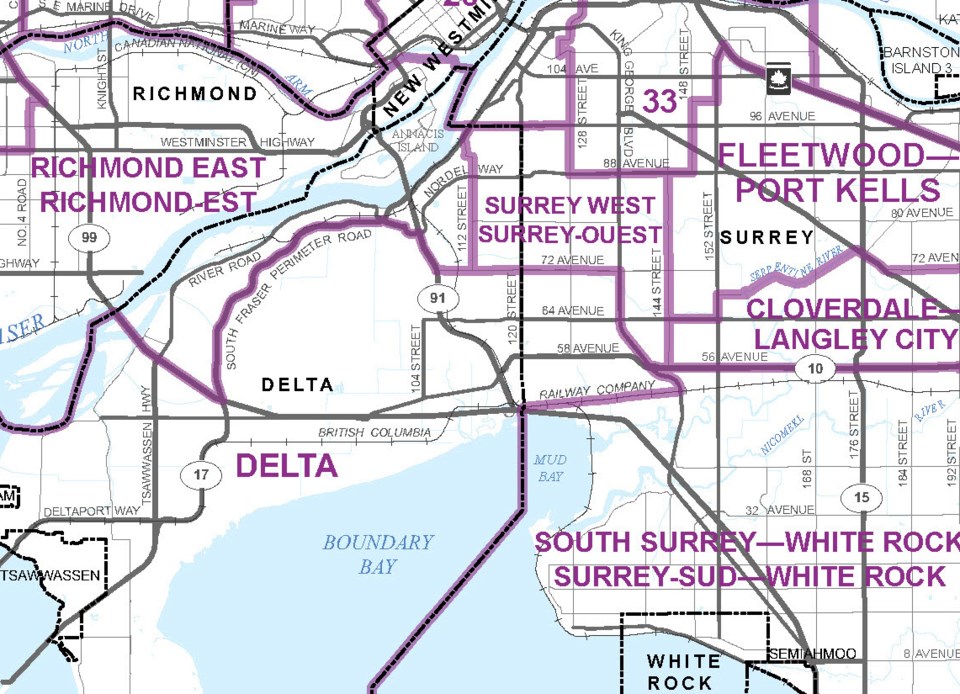Delta residents will have to wait a while longer to see if the Federal Electoral Boundaries Commission will suggest further changes or scrap a proposal which would see the Delta riding carved up.
The Federal Electoral Boundaries Commission for British Columbia last year put forward a proposed new electoral map for consideration. They were discussed at public hearings in Delta and throughout the province.
The map introduces changes to federal electoral district boundaries and has been developed through an independent and non-partisan process.
More than 100 residents attended a public hearing at the Coast Tsawwassen Inn in June and those who signed up to speak reiterated concerns about Delta losing effective representation in Parliament.
The commission was to have a final report prepared, which could suggest changes, but the commission decided to request a two-month extension to the Chief Electoral Officer, pursuant to the Electoral Boundaries Readjustment Act.
A spokesperson with the commission told the Optimist the new deadline for the commission to submit its report to the House of Commons is Feb. 9.
The commission will post on social media and issue a news release when it is tabled, while the report will also be on the commission’s website :
https://redecoupage-redistribution-2022.ca/com/bc/index_e.aspx.
The City of Delta had previously been divided with South Delta being part of the Delta-Richmond East riding, while North Delta was attached to Surrey as part of the Newton-North Delta riding.
By the 2015 election, the boundaries were reconfigured to combine both North Delta and South Delta into one Delta riding.
However, Delta could once again be divided as a new riding called Delta would see Ladner, Tsawwassen and North Delta below 72 Avenue join part of Surrey, extending all the way to King George Highway.
Another part of North Delta would be lumped into Surrey as part of a Surrey riding, while another area of North Delta and the River House area of Ladner would join a newly reconfigured Richmond East.
It’s part of many changes being proposed in response to the significant, but uneven growth in B.C.’s population.
Delta council described the proposal as a “massacring of the lines” which will leave part of Delta in the “extreme minority” if the changes go ahead.
Council agreed to write to the Federal Electoral Boundaries Commission to convey Delta's opposition and request that Delta remain as a single electoral district.
Meanwhile, in a separate provincial process, the comment period on proposed changes to B.C.’s provincial electoral districts has wrapped up, changes which include the ridings of Delta North and Delta South.
The BC Electoral Boundaries Commission last fall released its preliminary report, recommending the creation of six new provincial ridings and changes to the boundaries of many existing electoral districts.



